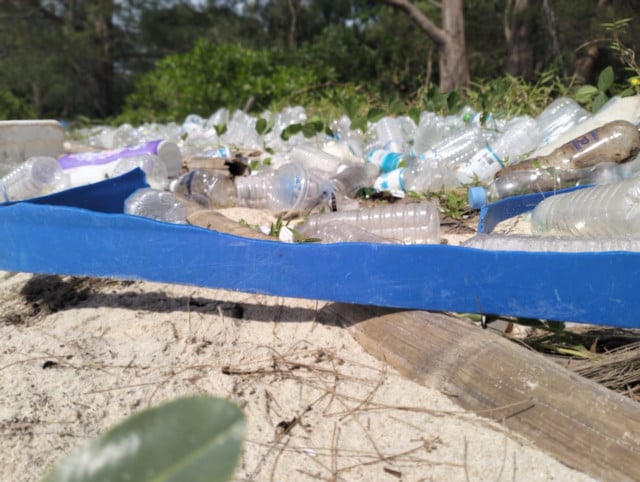Marine Litter Threatens Cambodia Seawaters: UNEP

- By Nicolò Tissier
- February 7, 2023 11:55 AM
PHNOM PENH – The United Nations Environment Program (UNEP) released a report in November 2022 about marine litter in Cambodia, with the support of different NGOs and institutions.
It stressed that plastic pollution generated by people’s consumption habits is causing harm to the country’s waters.
According to the 52-page long document, urban Cambodians are estimated to consume 2,158 plastic bags per person per year. Phnom Penh’s population alone is thought to use more than 10 million plastic bags each year.
“The inescapable visual presence, prevalence of plastic use and absence of effective waste management systems leaves little doubt that marine litter presents a challenge for the Kingdom, threatening people, ecosystems and economies,” read the report.
Nevertheless, it noted that “limited data exists to quantify and characterize marine litter in Cambodia.”
UNEP defines marine litter as any “persistent, manufactured or processed solid material discarded, disposed of or abandoned in the marine and coastal environment”. In Southeast Asia, 80 percent of marine litter is estimated to be plastic and comes from land-based sources.
Among the NGOs that contributed to the report, Fauna and Flora International (FFI) stressed that the plastic pollution in Cambodia’s seawater poses equal threats to the environment as to other Southeast Asian countries.
“They represent a serious threat to ecosystems and biodiversity conservation at national, regional, and global levels, with potentially devastating consequences for economic activities, human health, and the climate,” said Enrico Barilli, project manager in charge of marine plastics at FFI and specialist in marine plastics.
“At the individual level, plastic pollution is a direct threat to multiple species due to ingestion and entanglement, with proven records of fatalities among species including turtles, birds, and fish,” he added
Even though the awareness of the population regarding the downsides of plastic is growing, and more actions are being taken by international and national stakeholders, more needs to be done to invert a trend towards more and more plastic being thrown away in Cambodia.
“There is still a long way to go to turn the situation around due to the sheer quantity of plastic already discarded in the marine environment,” said the expert.
While the situation is worrying, Barilli remains hopeful that adequate solutions for every situation could bring a change. “The main priority needs to be changing consumption behaviors: we need less plastic,” he said.
He stressed that Cambodians should drastically change their behavior when it comes to plastic consumption. “We need to enable people to adopt alternative reusable products and refuse unnecessary plastic items, and for companies and businesses to change production systems and re-think packaging and products,” said the expert.
He sees it as a fundamental key to solving the global plastic problem: “In many countries, improving waste collection and recycling could make an immediate difference, but, ultimately, behavior change around consumption is needed for a long-term, sustainable solution to the plastic problem.”
As an NGO based in Cambodia, FFI helps identify the required actions to tackle plastic pollution in the country. It aims to coordinate its own actions with governmental policies toward the protection of the environment.
“International and regional cooperation is essential. Plastic pollution is a complex, multi-sector, and cross-country issue that requires systemic changes for a long-term solution,” said Barilli.
A Mekong River Commission (MRC) Summit is due to be held next April in Vientiane, Laos, to coordinate MRC member countries’ actions to reduce the pollution of the river.
“Each country has different gaps and needs and should adapt solutions based on its current situation and capacity,” recalled Barilli. “But, international cooperation is important for bridging these gaps in funding, capacity, and technical skills, and ensuring a harmonized response.”
The need for coordination and a common goal is clear: “Regional and international agreements and conventions are fundamental to setting specific goals and targets, and defining commitments and deadlines.”
“Existing institutions are providing great support to tackle marine plastic pollution, but an internationally binding agreement will be a more effective step towards a long-term solution.”















